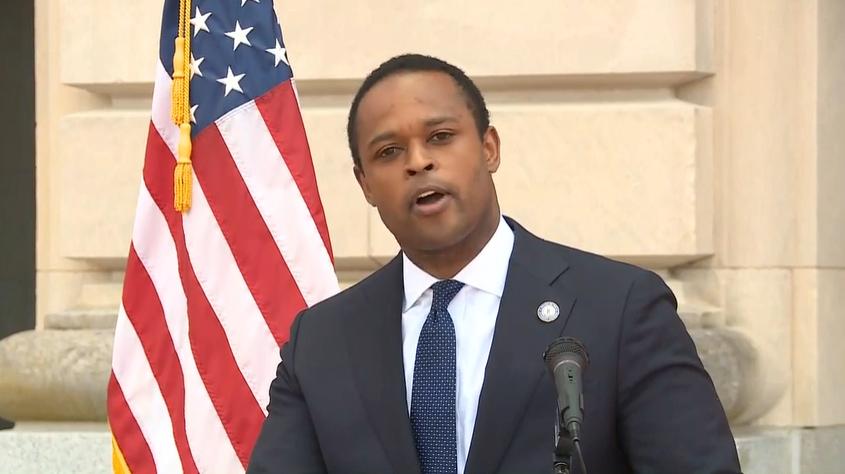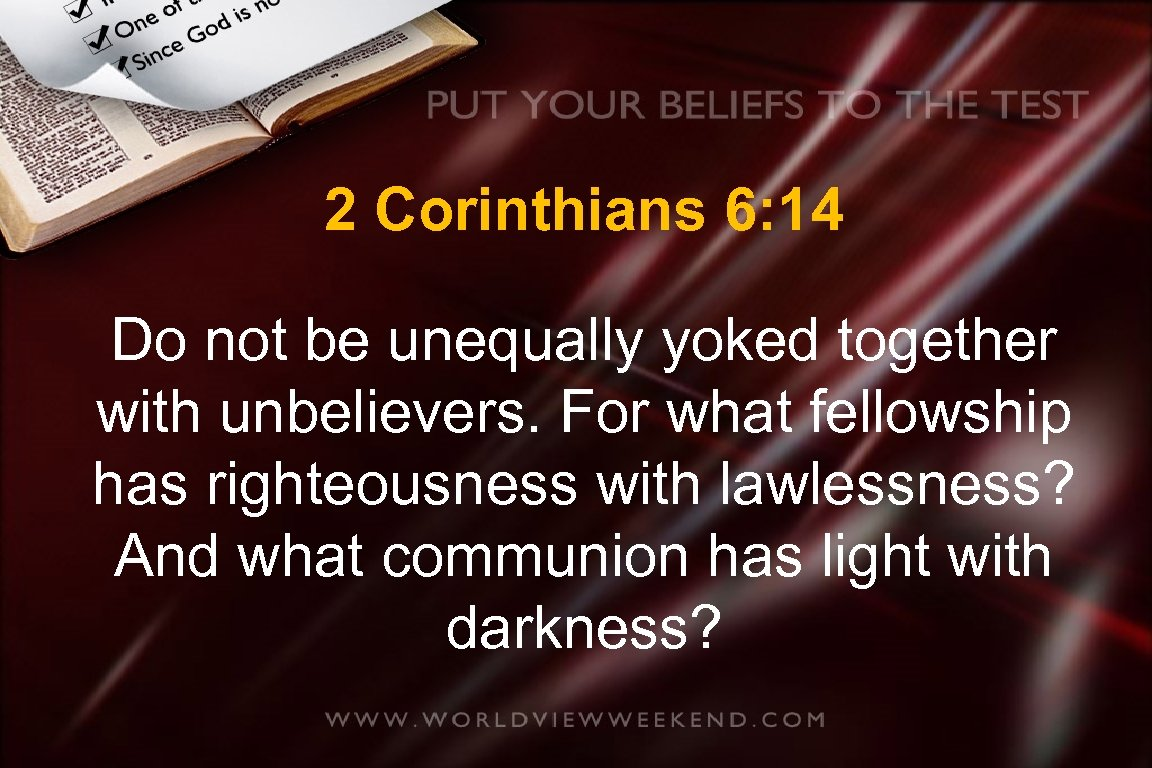“UNCONSTITUTIONAL”: KENTUCKY ATTORNEY GENERAL REBUKES GOVERNOR BESHEAR’S HALT ON IN-PERSON CHURCH SERVICES

“UNCONSTITUTIONAL”: KENTUCKY ATTORNEY GENERAL REBUKES GOVERNOR BESHEAR’S HALT ON IN-PERSON CHURCH SERVICES
BY HEATHER CLARK
republished below in full unedited for informational, educational and research
purposes:
FRANKFORT, Ky. (Christian News Network) — Kentucky Attorney General Daniel Cameron has filed an amicus brief in support of a local church and against his own governor, stating that Andy Beshear’s blanket halt on in-person church services, without taking into account the size of the gathering or the distancing between attendees, is “unconstitutional.”“These restrictions apply no matter how large the gathering might be, no matter where the people might get together, and regardless of whether they practice safe social-distancing and good hygiene. This is unconstitutional. But it does not have to be this way,” Cameron wrote on Wednesday in support of an appeal in the case of Maryville Baptist Church v. Beshear.“By simply implementing the same social-distancing measures for religious gatherings as for liquor stores, retail chains, and offices, the governor could achieve the same state interest in a less-restrictive manner,” he opined.Cameron gave examples of considerations or criteria that Beshear could put forward instead of a general ban.“[T]he order could permit small gatherings, or gatherings based upon the size of the space in which people meet,” he said. “Could a congregation of ten individuals, for example, meet for worship in a large auditorium?”BACKGROUNDOn March 19, Gov. Beshear issued an order prohibiting “mass gatherings,” which “includ[ed] any event or convening that brings together groups of individuals, including, but not limited to, community, civic, public, leisure, faith-based, or sporting events; parades; concerts; festivals; conventions; fundraisers; and similar activities.” It did not state any size allowances.Earlier this month, during his daily COVID-19 update, Beshear warned residents not to attend in-person Easter gatherings, including church services, stating that their license plate numbers would be recorded and submitted to local health departments.“Any individual that’s going to participate in a mass gathering of any type that we know about this weekend, we are going to record license plates and provide it to local health departments,” he said. “Local health departments are going to come to your door with an order for you to be quarantined for 14 days.”“Understand that this is the only way that your decision doesn’t kill somebody else, that your decision doesn’t spread the coronavirus in your county and your community,” Beshear continued. “Your decision to go to a mass gathering doesn’t negate the sacrifice of every other house of worship — 99.99 percent that are choosing to do the right thing.”
On Easter, two Kentucky state troopers did indeed record the license plate or VIN numbers of the approximately 50 indoor worshipers at Marysville Baptist Church in Hillview, and members received letters advising that they were consequently required to quarantine.“This vehicle’s presence at this location indicates that its occupants are present at a mass gathering prohibited by orders of the governor and the Cabinet for Health and Family Services,” the notices read in part.“Employees of the local health department will be contacting those associated with this vehicle with self-quarantine documents, including an agreement requiring this vehicle’s occupants and anyone in the household to self-quarantine for 14 days.”It also noted, “Please be advised that KRS 39A.990 makes it a Class A misdemeanor to violate an emergency order.”The church and its pastor, Jack Roberts, soon sued Beshear, stating that an injunction was necessary as they “remain targets of governor Beshear’s enforcement threats.”The legal challenge read in part:“Plaintiffs seek a TRO restraining enforcement against Plaintiffs of the various COVID-19 orders issued by Governor Beshear and other Commonwealth officials purporting to prohibit Plaintiffs, on pain of criminal sanctions and mandatory, household-wide quarantines … regardless of whether Plaintiffs meet or exceed the social distancing and hygiene guidelines pursuant to which the Commonwealth disparately and discriminatorily allows so-called ‘life-sustaining’ commercial and non-religious entities (e.g., beer, wine, and liquor stores, warehouse clubs, and supercenters) to accommodate large gatherings of persons without scrutiny or numerical limit.”INJUNCTIVE RELIEF DENIEDHale
On April 18, U.S. District Judge David Hale, nominated to the bench by then-President Barack Obama, ruled against Maryville Baptist Church, opining that Beshear’s order prohibiting in-person “mass gatherings” does not discriminate against churches as it bans all mass gatherings.He also noted that churches have alternatives: drive-in, online, or telephone meetings, or watching online or listening on the radio.“[U]npersuasive is Plaintiffs’ contention that the orders violate their right to freely exercise their religion by discriminating against religious conduct. Again, the order temporarily prohibits ‘[a]ll mass gatherings,’ not merely religious gatherings,” Hale wrote. “Religious expression is not singled out. And further, contrary to Plaintiffs’ assertions, there are no identified exceptions to the prohibition on mass gatherings.”He additionally rejected the argument that it is unfair to allow supercenters or liquor stores to remain open while churches may not meet in person, finding that shopping is rather a “transitory experience” while church is more akin to a communal gathering at a concert or restaurant.“Plaintiffs seek to compare in-person attendance at church services with presence at a liquor store or ‘supercenter store[].’ The latter, however, is a singular and transitory experience:individuals enter the store at various times to purchase various items; they move around the store individually subject to strict social-distancing guidelines set out by state and federal health authorities — and they leave when they have achieved their purpose,” Hale wrote.“Plaintiffs’ desired church service, in contrast, is by design a communal experience, one for which a a large group of individuals come together at the same time in the same place for the same purpose.”CAMERON INTERVENESThe church appealed, and Attorney General Cameron argued in his amicus brief in support of Marysville Baptist Church on Wednesday that Hale got it wrong.
“Simply put, permitting worshipers to attend a service where everyone typically remains in the same spot throughout (all the while social distancing) will logically place fewer Kentuckians within six feet of one another than shopping at a grocery store, hardware store, or other retail business where they will continuously pass one another, stand in line together, or bump into one another as they turn a corner,” he contended.“And that is not to mention that in such retail establishments shoppers will pick up and put back goods, push the same shopping carts, and touch the same credit card machines.”Cameron opined that churches are indeed being treated unfairly since secular activities are allowed, which makes the governor’s orders “quintessential discrimination against religion [and] requiring the state to meet the high burden of strict scrutiny.”“Even though these same orders broadly permit individuals to crowd into hardware stores and law offices, or newsrooms, liquor stores and grocery stores, they do not permit people to attend religious services at a church, mosque, synagogue, or other house of worship, even if they follow social-distancing guidelines. This is, without question, an unconstitutional targeting of religious activity,” he wrote.“Governor Beshear has publicly declared that attending worship service is not life-sustaining, while allowing liquor stores and retailers to continue operating. It is mind-boggling discrimination,” Cameron lamented. “Or as the court noted in a similar case, ‘if beer is ‘essential,’ so is Easter.”He said that while none doubt that the government has an interest in preventing the spread of COVID-19, “Governor Beshear has offered no explanation as to why it is necessary to prohibit religious activities that pose exactly the same risk as similar, non-religious activities.”Cameron also held a press conference about the issue on Wednesday (view it below), and warned in a press release, “Governor Beshear should immediately rescind the executive orders targeting faith-based gatherings, and, if he doesn’t, then we will be forced to file a lawsuit and allow a judge to determine whether his order, as it pertains to religious groups, is constitutional.”Beshear defended his actions, stating, according to WYMT, “Folks, I’m not trying to set rules that are difficult, and I’m not trying to set rules that are controversial. I’m just trying to set rules that save lives.”
